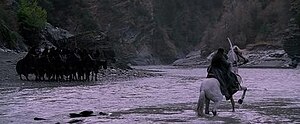Like every other published writer I know, my work has
garnered rave reviews and anti-rave reviews. (Or perhaps that is rave
anti-reviews?) Both ranged from insightful and well thought out to haring off
after irrelevancies (like the reader who posted a negative review “not very
good” on GoodReads of an unreleased anthology I’d edited and that no one, not
even the publisher, had yet seen). I try
to be philosophical about such reviews, keeping in mind that most of them are
from amateur reviewers, many of whom have their own axes to grind, as it were.
This is not to say that non-professional reviewers cannot produce thoughtful,
worthwhile reviews, only that there is no filtering mechanism or gatekeeper to
sift out those reviews from the noise. I don’t think it’s necessarily a bad
thing to have a wider discussion of books and other media, one that includes
more people. In fact, conversations about books are a good thing! Sounding off
for its own sake, seeing how mean-spirited and provocative you can be, is another.
We call folks who do that trolls, and trolls write book reviews, too.
That said, I recently noticed my own reaction to a scathing
review of a movie by a professional reviewer. “Scathing” was the term of the
friend who pointed out the review. My friend thought the way the reviewer
savaged the film was highly entertaining. I suppose this is what movie
reviewers are paid to do – to entertain. But why is it entertaining to show off
how clever one is, as if there is a contest to see who can produce the most
sarcastic commentary? We don’t tolerate hate speech or bullying, so why do we
applaud viciousness in this form?
I don’t believe for a moment that the directors, producers,
actors, and all the other folks are deflated by such reviews. For one thing,
they make big bucks, even for a film that gets panned. Then there’s the point
that any publicity, good or bad, drives sales. Yet I can’t help thinking that
somewhere along the line, some of those people loved this project and did their
very best. And that some of the folks who saw the film just loved it, too.
Or…would have loved it if they had seen it? Or would have loved it if they had
not seen it through the lens of a scathing review?




